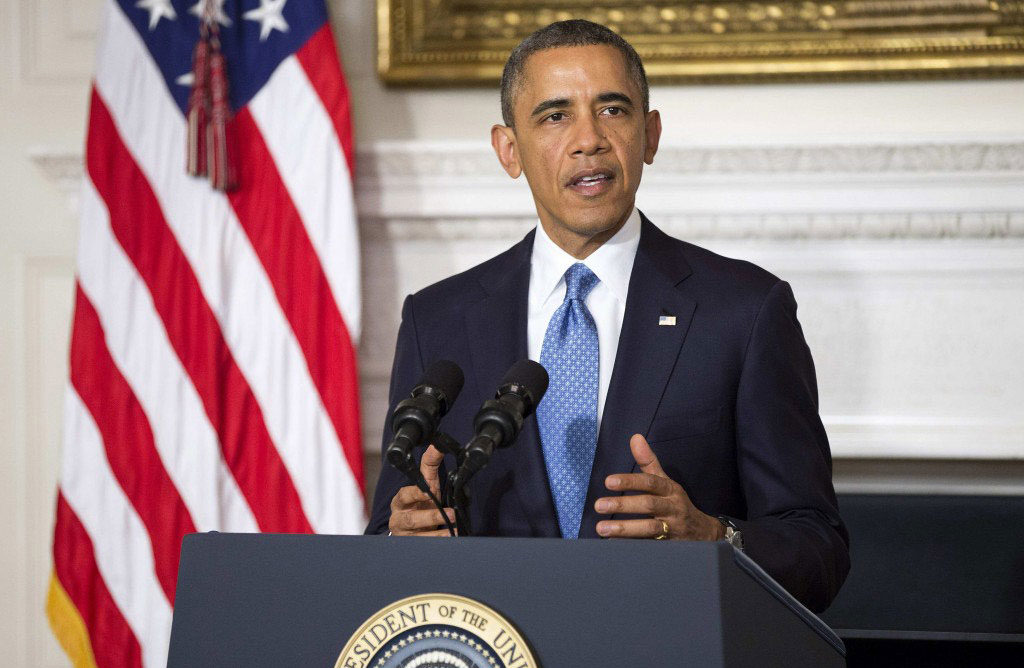Australia/Israel Review
Europa Europa: Going Swedish?
Dec 18, 2013 | Douglas Davis

Douglas Davis
From Israel to Jordan, Egypt, Turkey, Saudi Arabia, Kuwait and the myriad Gulf statelets, the perception that Washington has thrown in its lot with the Iranian-led Shia world – Syria and Hezbollah, plus Iraq – is unmistakable. That might not have been Obama’s intention, but in such matters, perception trumps intention.
“As we go forward,” said Obama shortly after the outline of an interim nuclear deal was agreed with Iran in Geneva, “the resolve of the United States will remain firm, as will our commitments to our friends and allies – particularly Israel and our Gulf partners, who have good reason to be skeptical about Iran’s intentions.”
Few, it seems, were listening. The interim “Joint Plan of Action”, intended to halt Iran’s headlong rush to weaponise its highly enriched uranium, coming on the heels of Obama’s equivocation over Syria’s use of chemical weapons, has inflicted lasting damage on Washington’s credibility in the region and on its long-term relations with traditional regional allies.
The Saudis, normally circumspect, did little to hide their anger over what they saw as American betrayal: “We were lied to,” Nawaf Obeid, a senior adviser to the Saudi royal family, told an audience in London. “Things were hidden from us.” Prince Turki al-Faisal, a former Saudi Ambassador to Washington and one of the most senior members of the royal family, said Riyadh might acquire its own nuclear weapons.
Nor did Israel’s Prime Minister Binyamin Netanyahu pull his punches. He labelled the deal “a historic mistake.”
The question is: precisely whose vital national interest did Obama think he was serving when he embarked on a course that he must have known would alienate Washington’s major regional allies? Israel is the regional power and America’s most loyal ally; Saudi Arabia is a key energy source, custodian of the two holy mosques and leader of the Sunni section of Islam, which comprises some 85% of the Muslim world.
He certainly pleased Teheran. And he pleased the Europeans, who had previously sent their three most senior foreign ministers to negotiate with the Iranians until they concluded, privately, that the West must learn to live with a nuclear Iran. The Europeans might acquiesce, but surely not the Israelis, confronting an explicit existential threat from Teheran; surely not the Saudis, confronting unpalatable Shi’ite hegemony of the region. And surely not the Americans, confronting total upheaval in the strategically sensitive Middle East – plus the real prospect of widespread nuclear proliferation in the region (think Saudi Arabia, Turkey and Egypt for starters).
“America’s enemies can take heart if this is how Obama is seen to be acting towards his allies,” a senior political source in London told me.
How to explain the extraordinary spectre of Washington lying down with the mullahs? Early in his presidency, Barack Obama expressed the aspiration to make America more like Sweden. His dreams appear to have come true. Obama appears to have wrapped himself in the flag of European soft power and Europeanised his Administration.
This is not a critique of his reluctance to reflexively consider the old bare-knuckle approach to international problems. True, he demonstrated in Libya that he is capable of unleashing limited American military power, but then only as a junior partner in a multilateral coalition. However, when Syria crossed Obama’s self-declared red line and used chemical weapons, or when Iran crossed another Obama red line and was on the brink of nuclear breakout, America drew back. Such an approach is unbecoming of the global superpower.
It is all very well aspiring to be bland, neutral Sweden, but the brutal reality is that what Sweden says or does has little consequence in global affairs. When America goes wobbly, however, it sends a message of appeasement, uncertainty and weakness to the very people who need to fear a powerful, determined leader of the free world. Going wobbly is the reaction of the Europeans, whose global role, military power and moral compass have been subsumed by guilt, social causes and wealth re-distribution.
Iran makes no secret of its spiritual and material aid to Syria and Hezbollah. Nor has it hidden its contempt for the West in general and the United States in particular. For Obama to imagine he can win such friends and influence such people with telephone calls and interim agreements is delusionary. The United States, no less than Israel and Saudi Arabia, has cause to fear the day when Iran announces that it has acquired nuclear weapons and the means to deliver them.
These are the words the Supreme Leader, Ayatollah Ali Khamenei, chose to use when he addressed the Iranian Revolutionary Guards on the day the Geneva negotiations started: “In the military, political, and economic wars, in every arena where there is a test of strength, you, the believer, must stand firm against the enemy [the United States]. Your will must overcome the determination of the enemy.”
In this arduous struggle, he instructed, the believer can use “heroic flexibility,” which does not mean “abandoning the ideals and aims of the Islamic regime,” but rather “clever, artful manoeuvring that allows the believer to achieve his goals. Step by step.”
The echoes of those steps are ringing around the world.
Tags: Europe






